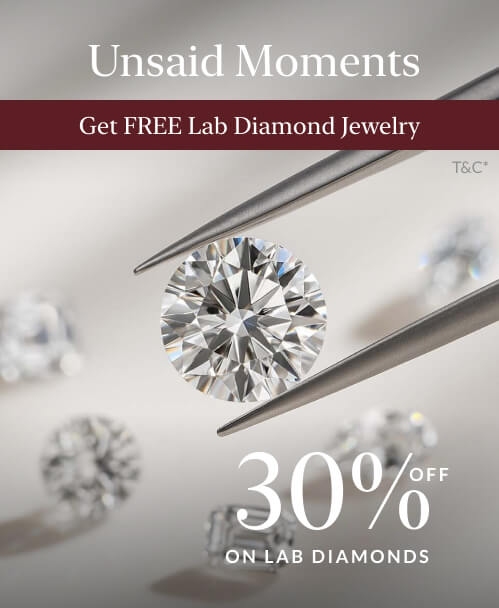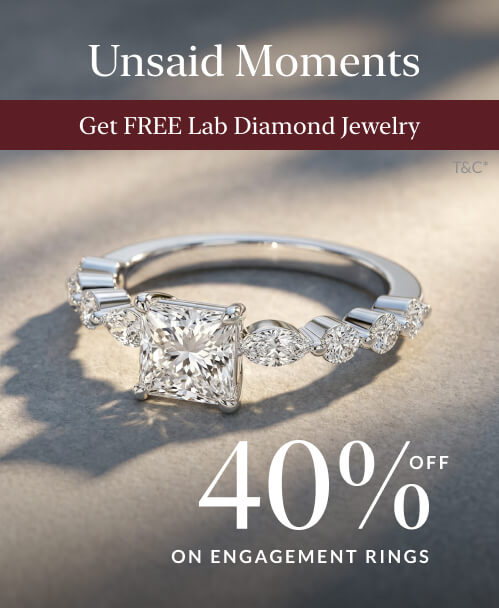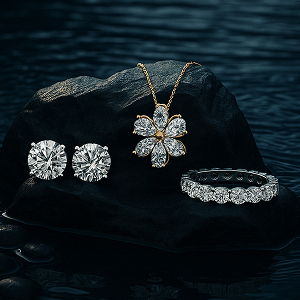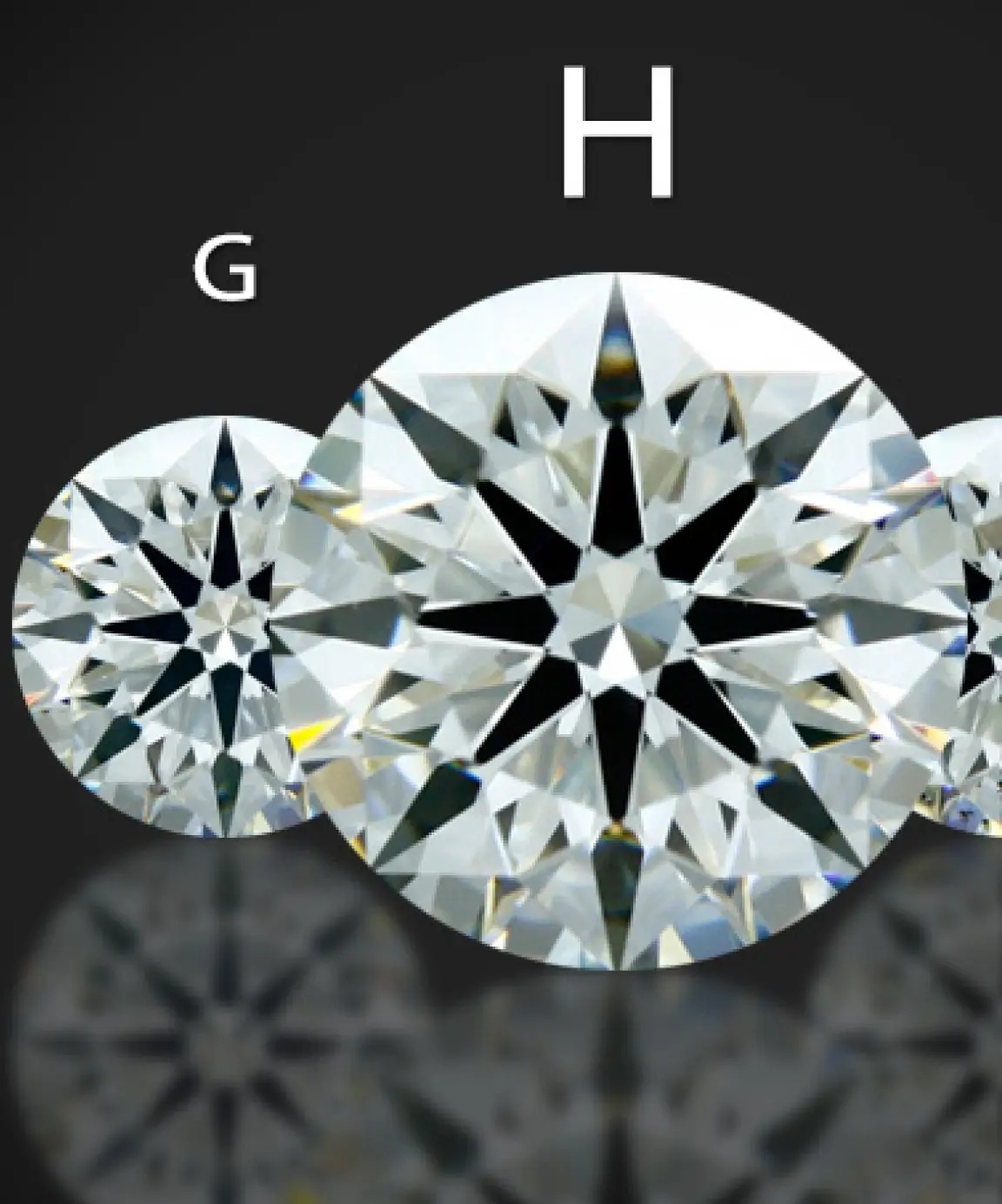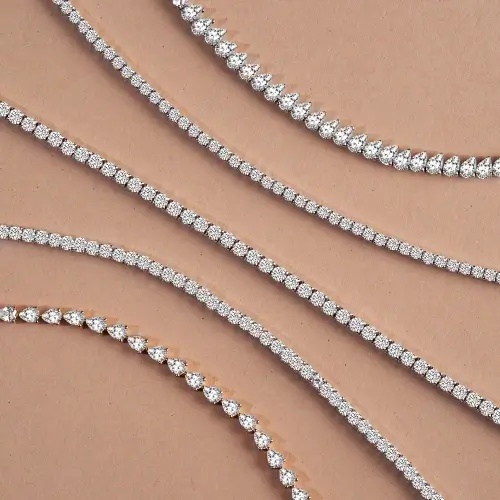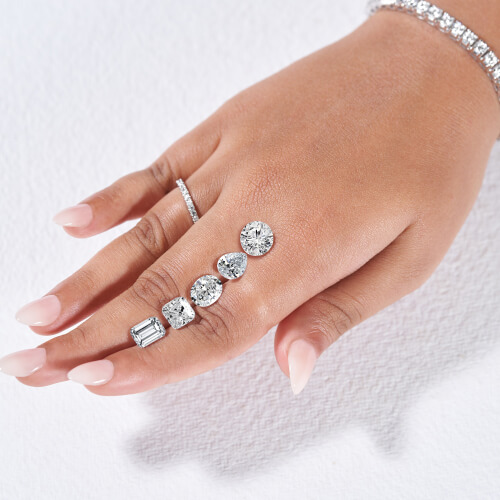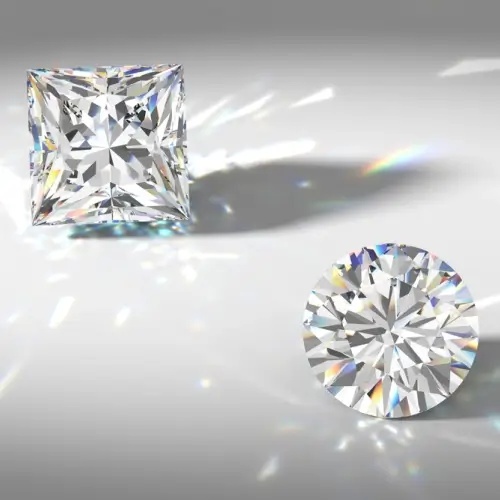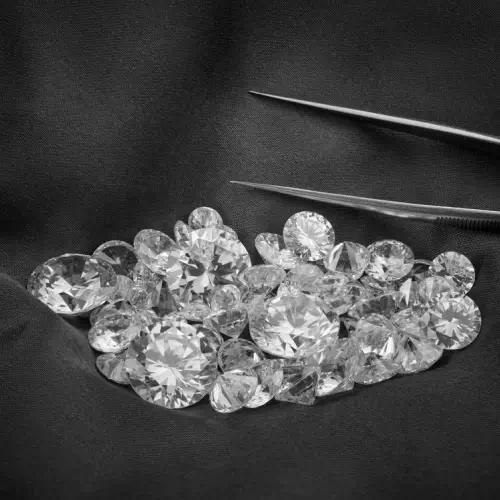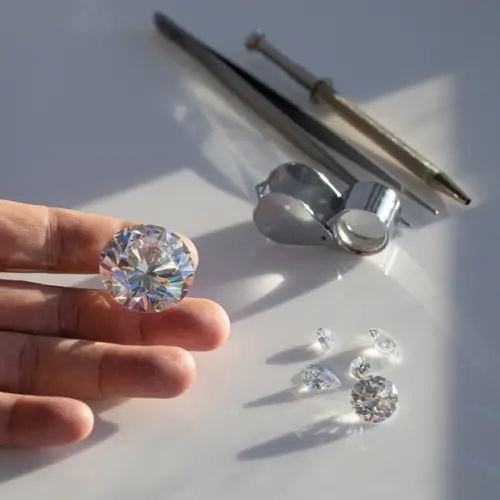Get up to 60% Off*
Use code ‘VDAY2026’ to get up to 60% off on Valentine’s Special jewelry.
SHOP NOWThe first thing that captures your attention when you look at a diamond is its sparkle. Whether diamond engagement rings or tennis bracelets, from center stone solitaires to trails of pave set diamonds, this precious stone is known for attracting your attention because of its radiant twinkle. But have you ever wondered how diamonds get their shiny luster? The stone's color plays just as much a role as the diamond's cut quality. Therefore, to help you understand the specifics of the diamond's color range better and whether a g color diamond is better than an H color diamond, we must first know what a diamond color is.
TABLE OF CONTENT
What Is Diamond Color?
The right diamond can be chosen by understanding what the various diamond colors represent. It's interesting to note that the majority of gem-quality diamonds' color evaluations are based on the colorlessness of the diamonds or the lack of diamond color. A diamond from the colorless range resembles the colorlessness of water and the same structural perfection as a diamond which has a higher value. GIA's D to Z diamond color-grading technique compares a stone to master stones with known color values while exposing it to specific lighting and viewing circumstances in order to assess the level of colorlessness.

A lot of these tiny differences in diamond hue are not noticeable to the untrained eye, yet they have a significant impact on the quality and cost of diamonds. Therefore, it is crucial to seek an expert's advice when determining the ideal shade for your gemstone.
What Are the Different Color Scales for Diamonds?
According to the color grading scale provided by GIA that rates the color of a diamond from D (colorless) to Z (light yellow hue, the diamond color refers to the color of a diamond. Its lack of color, which also significantly affects how it appears, defines both its grade and worth. According to a grading system from D (colorless) to Z (faint yellow), the color grade of a diamond is normally decided with the diamond facing downwards and the culet facing upwards against a perfectly white surface. The highest possible color grading for a diamond is the D color which has an unmatched brightness and is incredibly rare.
An E or F color rating diamond emits a high level of brilliance and sparkle despite having very slight traces of color. G color diamonds or H color diamonds offer exceptional value because they only have color that is apparent in comparison to higher color grades. While I and J colored diamonds may appear to be without color to the untrained eye, it actually has a small amount of color that can be seen. The visibility of color is faint as these diamond grades can nevertheless radiate fire and beauty despite the presence of color. When the diamond is set in yellow gold consider choosing a lower color because it will be less noticeable.
What Is the Best Color for Diamonds?
While D, E, F, colored diamonds are extremely valuable, a popular choice and high value in what would appear to the naked eye as a colorless diamond can be found by looking for G color diamonds to J color diamonds. Diamond specialists advise to choose from G color diamonds and H color diamonds over 1 carat because color can be more easily seen in larger stones. G color diamonds and H color diamonds will appear to be higher color grade diamonds when they are put in jewelry.
Since the cut is the primary determinant of a diamond's brilliance, investing in a better cut rather than a higher color will help you get the most out of your investment. Because they contain more facets than other designs, the round, princess, and other modified brilliant cuts tend to conceal color better than other shapes. A lower color diamond with a better cut grade will shine and look more appealing than a higher color diamond with a lower cut grade, making it the perfect pick.

G Color Diamond
When a G color diamond is examined and graded by a qualified gemologist, it may have a very slight yellow tint, which is what is meant by the term "near-colorless" in this context. Gemologists examine diamonds in well-lit laboratory settings. They utilize specialized tools, such as jewelers' loupes, which enable them to inspect the diamond at 10x and 30x magnification, to clearly see any color abnormalities or defects in diamonds. It follows that while a G color diamond may appear slightly different from a D color diamond when seen under high illumination and magnification, the color difference is far more difficult to detect in a typical setting without intense lighting and specialized equipment. As mentioned before, with the proper cut, a G color diamond can appear to the unaided eye to be almost identical to a D color diamond.

H Color Diamond
H color diamonds fall in the "near colorless" section of the GIA diamond color scale. When cut properly, they can offer excellent value by resembling a colorless stone in appearance at the same time they cost significantly less. As the grade lowers in the alphabet for a diamond, it corresponds to how much more naturally yellow it becomes. People frequently assume that gems cut in H color diamonds must have a strong, noticeable yellow color because they don't fall into the "colorless" category of the scale. This is not the case, though. It is quite difficult to distinguish between a H color diamond and a diamond with a color grading that is in the colorless range, even in a well-lit environment and under magnification.

What Is the Difference between G Color Diamond and H Color Diamond?
The highest color grades in the "near-colorless" spectrum are G and H. The differences between G and H diamond color were reviewed while selecting a diamond, and the key distinctions were discovered. Compared to H color diamonds, G color diamonds are slightly more colorless. On average, a G color diamond’s price cost more than H color diamonds. If looking to pick the ideal eco-friendly loose diamonds or the perfect cut diamonds for your jewelry, then Friendly Diamonds is the perfect pick for you. Based in New York, Friendly Diamonds is an online eco-friendly jewelry brand, providing sustainable lab grown diamonds and a wide range of jewelry options.
